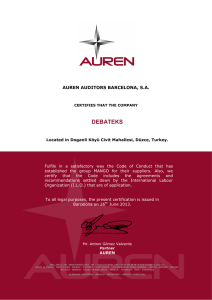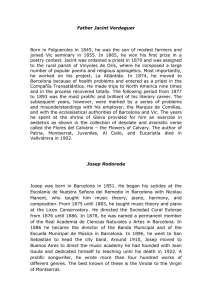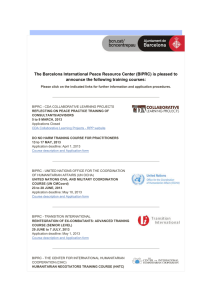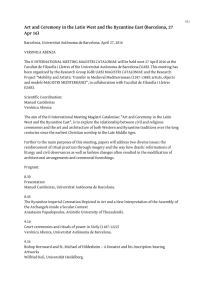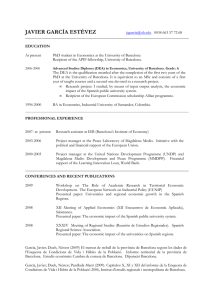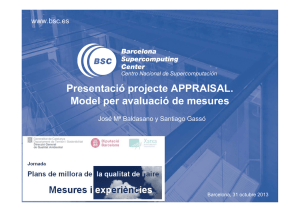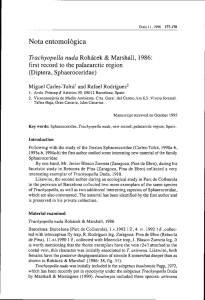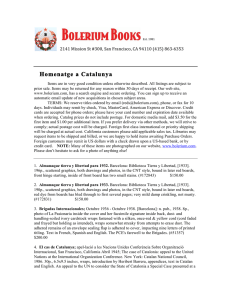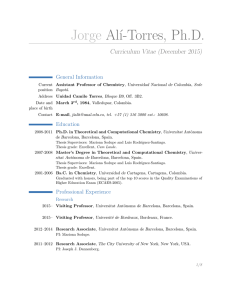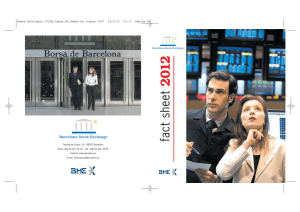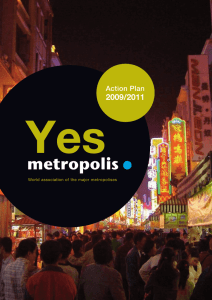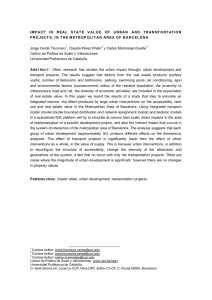Barcelona 1714
Anuncio
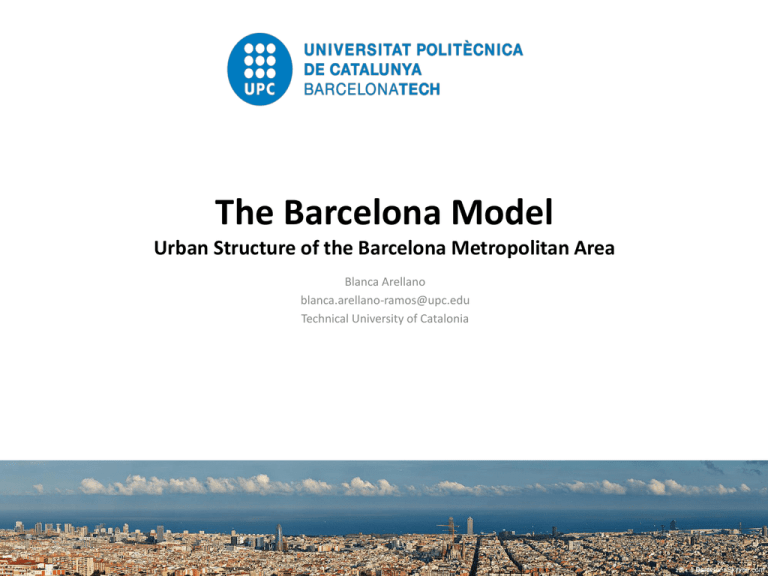
The Barcelona Model Urban Structure of the Barcelona Metropolitan Area Blanca Arellano blanca.arellano-ramos@upc.edu Technical University of Catalonia The construction of a compact city Barcelona 1714 Virtual reconstruction by CPSV - LMVC 1563, Anthonis van den Wyngaerde La desamortización: (secularization) Reclaiming of public space for the Old City “El Ensanche” (the expansion): plan for the “liberal city” El Ensanche by Ildefons Cerdà (1859) … a “metropolitan” project The internal reform Pla Baixeras (1879) Via Laietana (1909) The Universal Expo of 1888: public space for the city Universal Exposition of 1888: public space for the city The Universal Exposition of 1888: public space for the city The International Exposition of Barcelona 1929 The incorporation of landscape Change of scale: from the city to the metropolitan area (1953 - ) El Plan comarcal de 1953 (Regional Plan), beginning of the metropolitan scale change Plan Director del Área Metropolitana (1964) From Plan Director (1964) to Metropolitan General Plan of 1976 Plan General Metropolitano de 1976 Projects for a compact city City and democracy: the Barcelona model and the democratization of the city in the political transition (1979-1992) Opening to the sea. The city starts to turn its eyes to the sea The Olympic City, a project for the city branding of Barcelona (1986-1992) After the Olympics Barcelona became a destination Barcelona: model of compactness and urban renewal Barcelona: model of compactness and urban renewal Post Olympic projects (1992 - ) Diagonal Mar Plaza Las Glorias and the opening of Av. Diagonal to the sea Plan 22@ From industrial to technological district 3,2 0,4 12% H 2,7 88% A El Forum de las Culturas (2004) Barcelona: urban regeneration Barcelona: urban regeneration From a compact city to a sprawled metropolis? The land consumption (1990-2000) Barcelona (RMB) 4,5 milions d’habitants 675 km2 Atlanta (UA): 3,5 milions d’habitants 5083 km2 Regional Planning of Barcelona (2010) The evolution of built up area of Barcelona Region ÀMBIT PTMB Època Medieval Segle XVI-XVII Fi XVII-Inicis XVIII Fins a 1880 Fins a 1920 Fins a 1956/57 Fins a 1972 Fins a 1986 Fins a 1992 Falta informació Institut d’Estudis Territorials 2005-2007 (CREAF) Habitatges Viviendas Alta Densidad Nhabitg Bloc Baja Densidad Totales 1900553 544905 2445458 78% 22% 100% Nhabitg IllaTancada 467406 1433147 Nhabitg UnifAilladaPareada 262879 Nhabitg UnifLiniaITancada 282026 Patterns of land occupation In Europe, versus traditional compactness and high density of Mediterranean cities, the urban sprawl has characterized the pattern of occupation of the territory of Nordic countries, representing both models a distinct type of building a city, a kind of "vernacular urbanism“. Convergence between the models of urban land occupation From the 50’s of XX Century, and specially since the generalization of the “American dream” (a single family home & a car), related to the crisis of the Fordist industrial city, there has been a gradual process of convergence between models of land occupation of Mediterranean urban systems and the central and northern Europe. The urban sprawl, has become a paradigm at the periphery of the European metropolis, regardless of inherited cultural and historical roots, although with some differences. Thanks for your attention! “We shape our cities; thereafter they shape us” Blanca Arellano blanca.arellano-ramos@upc.edu http://futur.upc.edu/BlancaEsmaragda ArellanoRamos http://www.upc.edu/cpsv/ Barcelona, marzo de 2015
